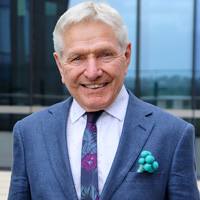
The Swiss are arguably the healthiest people in the world.
You would assume, then, that Switzerland must also have the best health system in the world. After all, Australia ranks fifth in rankings for ‘best health system’ (up one from 2023) and sixth when it comes to ‘healthiest people’. If we could do better on Aboriginal health, as we must, we would likely rank fifth on both measures.
But you’d be mistaken. While Switzerland might rank first for ‘healthiest people’, it comes in at 18th on ‘best health system’, despite the fact that Switzerland’s clinicians are of a high standard.
How can we explain this?
The Swiss have the highest per capita income in the world, resulting in positive social determinants of health. Negative social determinants of health, on the other hand, lead to poorer health outcomes. Even those with a reasonable standard of living are at a health disadvantage compared to the rich.
But, according to a senior Swiss health expert, there is another important reason for their rankings of 1 and 18.
Switzerland is divided into 26 Cantons, each with its own health system, and some have populations as low as 15,000. This is well below the critical mass needed to run an integrated health system, enjoy economies of scale and be fiscally and clinically efficient, effective, innovative and able to provide a full range of clinical services.
This international example is relevant for our local region. If we want the best health outcomes for our people, we cannot run our health service as three valleys, nor can we run it as electorate based or shire based, and we certainly cannot run it as city or town based. To do this would diminish our ability to achieve the best possible health outcomes for the people of our LHD. Healthcare quality does not recognise electoral, shire or town boundaries.
The high quality and dedication of all our staff is not in question, wherever they are located across our LHD. However, health outcomes are affected by many factors alongside a skilled and caring workforce.
It is imperative we continue to run our healthcare services as an integrated and fully networked LHD-wide system, and indeed that we move further in this direction. In doing this, we are putting the patient first and at the centre of our thinking.
Of course, this type of system works best when we engage with communities and when communities engage with each other. If we continue to do this, we will continue to deliver first rate healthcare services to our community, and we’ll continue to achieve the excellent health outcomes we currently enjoy.
We must resist the temptation to bow to pressure we get from time to time to deliver a wide range of services at all sites, because inevitably, even with the best efforts of our excellent workforce, the health outcomes for our communities may suffer, rather than improve.
Peter Carter, Board Chair